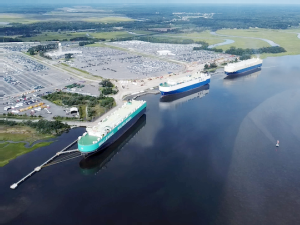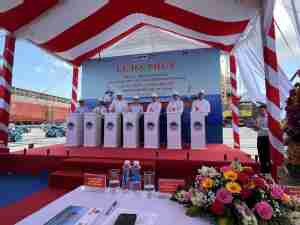Two sources familiar with the situation confirmed the plan.
Analysts said a merger would cut overhead costs at TUI AG, whose TUI Travel Plc unit, Europe's biggest tourism firm, is headquartered in London and whose Hapag-Lloyd unit is headquartered in Hamburg. TUI AG's headquarters are in Hanover and would move to Hamburg if the restructuring was approved.
Frenzel wrote that, "'the prime objective must be to prevent the split-off of the shipping business," the Financial Times reported.
"I cannot follow Frenzel's argument," said Jochen Rothenbacher, an analyst at Equinet. "I do not find a big difference between the proposed future structure and the current structure."
Currently, Hapag-Lloyd is a subsidiary of TUI and an investor could in theory make an offer just for Hapag-Lloyd. Under the new structure, such a bidder would have to make an offer for TUI AG, which would include the 51% in TUI Travel as well as Hapag-Lloyd.
"As I see it today, I don't see any difference," another analyst said. "I don't know if the new structure will include any new, special regulations. But if there was going to be no difference why would Frenzel do it?"
Some analysts said Frenzel's letter was a move to indicate the importance of Hapag-Lloyd to TUI, which wants to move more towards shipping and reduce its exposure to tourism.
SPLIT UP TUI
Frenzel has come under attack from investors for not splitting up TUI.
In his decade-long tenure at TUI, he has made it the world's fifth-largest container-shipping company and a controlling shareholder in TUI Travel.
But earnings have been patchy and Hapag-Lloyd's margins have been weak in the past couple of years after its 2005 acquisition of Canada's CP Ships.
France's La Tribune newspaper reported last week that TUI was negotiating a merger with NOL (Neptune Orient Lines Ltd.), Southeast Asia's largest container shipping company. NOL owns APL (American President Lines), one of the premier carriers in the Asia to North America trade lanes with a strong presence in the China market.
TUI denied the report, while Neptune declined to comment.
Although the deal may be tempting to investors, with carriers under economic pressure from rising costs (bunker and operations), increased regulatory pressure and smaller returns, the timing may not be right for another mega-deal.
Last year, there was media speculation that Denmark's A.P. Moller-Maersk could buy Hapag-Lloyd.
"Frenzel should act in a manner that treats investors in the best way," the analyst, who requested anonymity, said. "I think he should definitely consider these types of offers."
Dissenting TUI shareholders have called for the company to be separated. Late last year US activist investor Guy Wyster-Pratte bought a one percent stake in TUI and said he wants to oust Frenzel.
However, TUI's supervisory board in November extended Frenzel's contract until March 2012.
Although the deal may be tempting to investors, with carriers under economic pressure from rising costs (bunker and operations), increased regulatory pressure and smaller returns, the timing may not be right for another mega-deal. Even Moller-Maersk, perhaps the largest and arguably the strongest player has restructured, trimming its sails to suit the economic winds, during this uncertain period. Still there are a number of less conventional investors with capital itching to find a home. Certainly, DP World, is example of an outsider with the bank roll and the willingness to take a plunge. There are also a n










